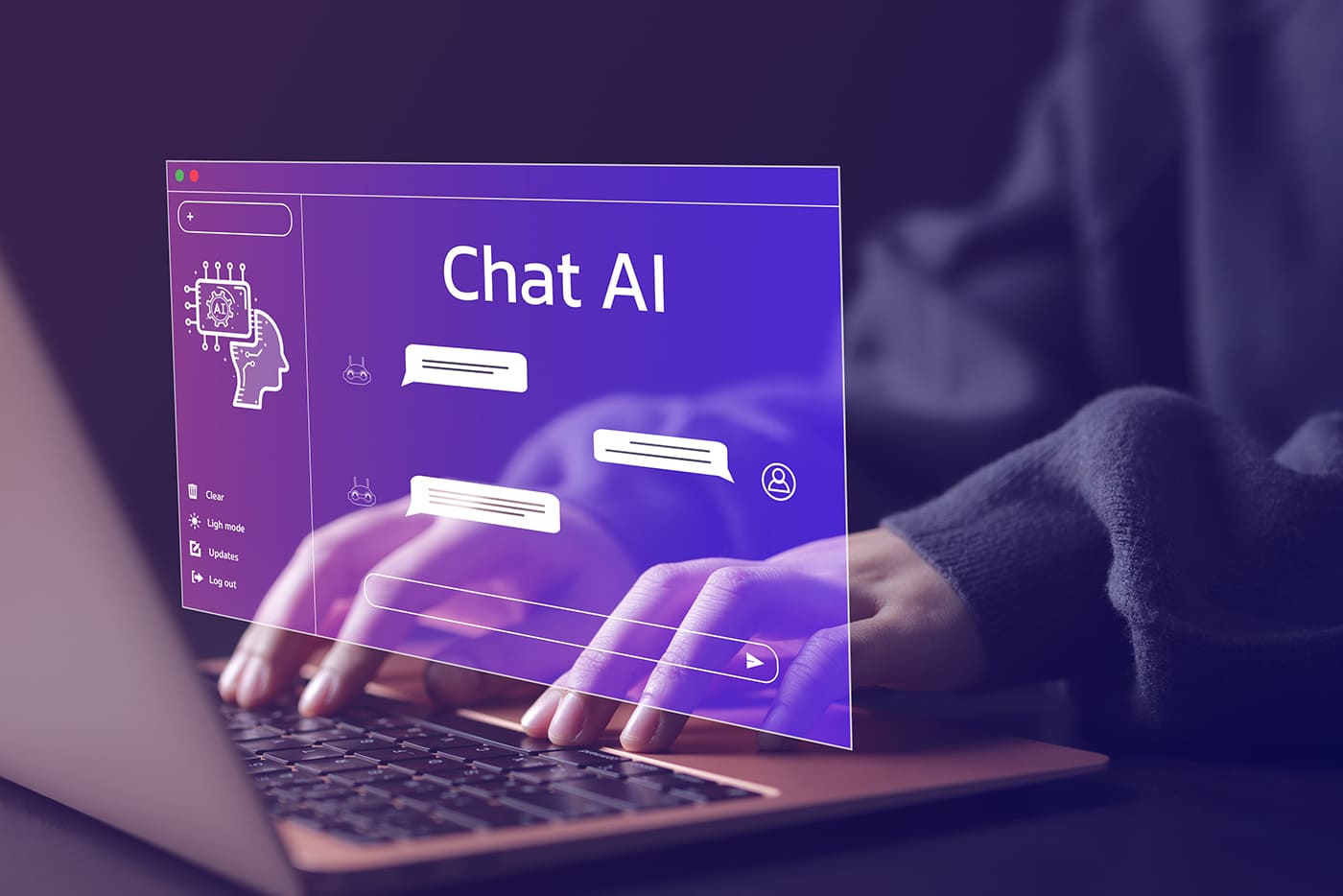Hustle GPT: Can You Really Run A Business Just Using ChatGPT?
4 June 2023
When a new technology emerges, it doesn’t usually take long before people start looking for ways to make money – and generative AI has proven to be no exception.
Of course, generative artificial intelligence (AI)– the best current example most likely being ChatGPT – is no everyday new technology. This means neither is the culture of money-making and entrepreneurship that’s quickly developed around it.

Unlike “regular” AI, cloud computing, the Internet of Things (IoT), blockchain, and other tech trends that have emerged during the past decade or so, ChatGPT is extremely simple to use, instantly empowering, and can be used by anyone.
This has led to the emergence of a culture that's being called "hustle GPT" – proponents of which believe that it can be used to build a fully automated, online business from scratch. For this new breed of budding AI entrepreneurs, the “holy grail” is a fully autonomous business that generates passive income 24/7 while they spend their lives enjoying the profits.
Is it really possible? Could we be witnessing the birth of the “technological utopia” that more optimistic futurists believe could be the result of the emergence of AI into mainstream society? Where work is a thing of the past, and our time is spent on higher pursuits like learning, creativity, and leisure? Let’s see what we can learn from the progress that’s been made so far.
What is Hustle GPT?
I’ll assume that most people reading this know what ChatGPT and generative AI is by now. If not, there's a simple primer here. You probably also know that it's widely being used to automate all sorts of mundane tasks in our day-to-day lives, like writing emails, creating legal and technical documentation, and organizing workloads.
Hustle GPT takes things further by attempting to automate every step of building and running a business. This could include coming up with the initial idea, designing products and services, creating a marketing campaign, and managing sales, finances, and customer services.
Some trace the beginning of the movement to a designer and writer going by the name of Jackson Greathouse Fall. He tweeted that he had created a prompt for ChatGPT instructing it to come up with a plan to generate the best return on a $100 initial investment without doing anything illegal.
Its suggestions included building an automated software-as-a-service business and setting up a website selling gadgets. It also got to work interfacing with other AIs, such as Dall-E 2, in order to create a logo and design a website. Seemingly the project quickly fell by the wayside, and a post on the business tech blog The Hustle suggests that the takeaway lesson is that AI business ideas still require human intervention to succeed.
Nevertheless, an idea was born, and would-be entrepreneurs around the world ran with it in the hope of working out how to develop their own fully-automated, passive-income-generating AI business models.
What are some examples of hustle GPT business models?
One of the most popular Hustle GPT business models is creating websites and leveraging the power of affiliate marketing. This involves automating the creation of content as well as the curation of affiliate links that pay the site owner a commission when visitors make purchases through the site.
There’s also a growing market for self-published AI-authored books. It’s possible to get ChatGPT to write a book for you, use an AI image generator like Dall-E 2 or Stable Diffusion to create a cover, and then publish it via Amazon’s Kindle Direct Publishing platform. With a little knowledge of Python, most of the steps of this process could be automated, letting you churn out large numbers of books very quickly. Whether or not anyone would want to read them is a different matter, but that certainly isn’t stopping a lot of people from trying this business model.
GPT-4 is also being used to create and sell digital card games such as Daring Dinosaurs and puzzle games like Bio Balance. As well as designing the games, it can be used to market them online, handle distribution, and take payments from buyers.
ChatGPT and generative AI can also be used for financial investing – a recent report found that a theoretical portfolio of 38 stocks outperformed ten of the most popular funds on the Interactive Investor platform. Hooking into APIs would enable it to make automated trades, potentially allowing anyone to create an AI-managed investment fund.
Of course, it’s well known that in a gold rush, the first to make money are those selling shovels. One person has reported that ChatGPT is helping them to set up a business based around creating business plans and selling services to other Hustle GPT entrepreneurs, including apps, design templates, and SaaS solutions, and by promoting it through online content platforms like Medium.
Is this the future of AI-Augmented Business?
It's clear that, as things stand, most of the action in the Hustle GPT community is experimental and focused on high-tech takes on good old-fashioned get-rich-quick schemes. There’s a lot of bragging on social media from people promising to sell the secrets of generative AI success. A cursory look into these seems to suggest that the most commonly offered tactics are affiliate websites and self-published books. There’s not much evidence that anyone has really made it work yet.
Beyond that, much of the community action is focused around the r/HustleGPT subreddit, where anyone can find ideas and get involved with new projects as they are launched. There’s also the aicofounded.com website that offers tutorials and guides to anyone wanting to explore the possibilities themselves. So far, over 200 people have taken up the Hustle GPT Challenge, put forward by original hustler Jackson Greathouse Fall.
The real reason these projects are interesting is that they demonstrate how different business functions can be coordinated and automated via AI. In the long term, this technology is going to have profound and lasting impacts on many aspects of how we do business and live our lives.
The arrival of computers in the last century allowed us to create more efficient and streamlined business processes for everything from marketing to finance. This decade, the impact of AI and generative AI will likely be just as significant, if not more so. Increasingly, information economy workers will find that their roles involve overseeing smart, automated processes, and the Hustle GPT movement provides a fascinating peek into how that might come about.
Related Articles
Flying Taxis And Self-Driving Trucks Arrive In 2026: 6 Transport Trends To Watch
By now, “smart” versions exist of just about every home appliance, gadget and gizmos we can think of. However, manufacturers continue[...]
Technology in Action: My Key Takeaways on How AI and Quantum Are Accelerating Global Transformation
By now, “smart” versions exist of just about every home appliance, gadget and gizmos we can think of. However, manufacturers continue[...]
Sign up to Stay in Touch!
Bernard Marr is a world-renowned futurist, influencer and thought leader in the fields of business and technology, with a passion for using technology for the good of humanity.
He is a best-selling author of over 20 books, writes a regular column for Forbes and advises and coaches many of the world’s best-known organisations.
He has a combined following of 4 million people across his social media channels and newsletters and was ranked by LinkedIn as one of the top 5 business influencers in the world.
Bernard’s latest book is ‘Generative AI in Practice’.






Social Media